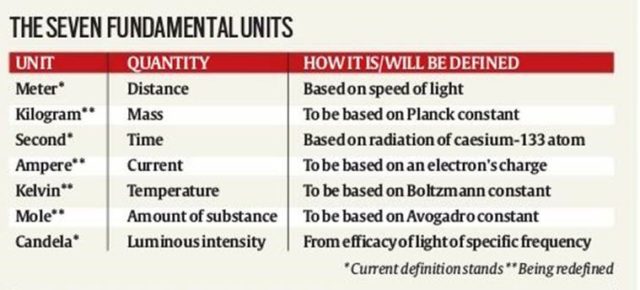PREVIOUS
Kilogram Gets New Definition
November 20 , 2018
2594 days
1294
0
- Representatives from 60 countries voted to redefine the International System of Units (SI) for weight, current, temperature and amount of chemical substance.
- All the SI units will now be defined in terms of constants that describe the natural world.
- It will bring an end to the use of physical objects to define measurement units.
- The new definitions impact four of the seven base units of the SI:
- The kilogram, ampere, kelvin and mole; and
- All units derived from them, such as the Volt (V), ohm (Ω) and Joule (J).
- The definition of the kilogram will now be replaced by the Planck constant – the fundamental constant of quantum physics.
- Until now, it has been defined as the mass of a platinum-iridium lump, the so-called Grand K, that is kept in a secured vault on the outskirts of Paris.

- It has been the world's one true kilo, against which all others were measured, since 1889.
- The decision has been made at the General Conference on Weights and Measures in Versailles, France, which is organised by Bureau of Weights and Measures (BIPM).
Leave a Reply
Your Comment is awaiting moderation.


